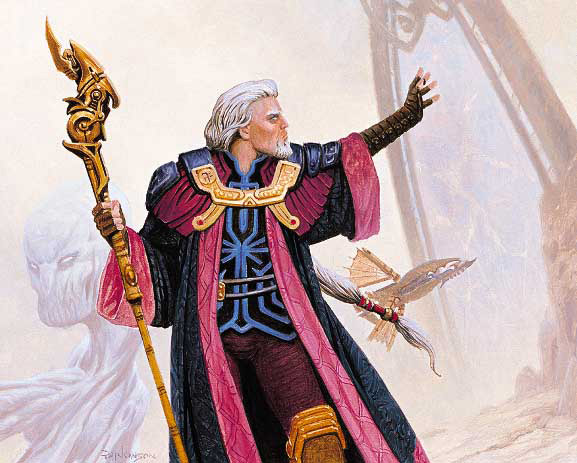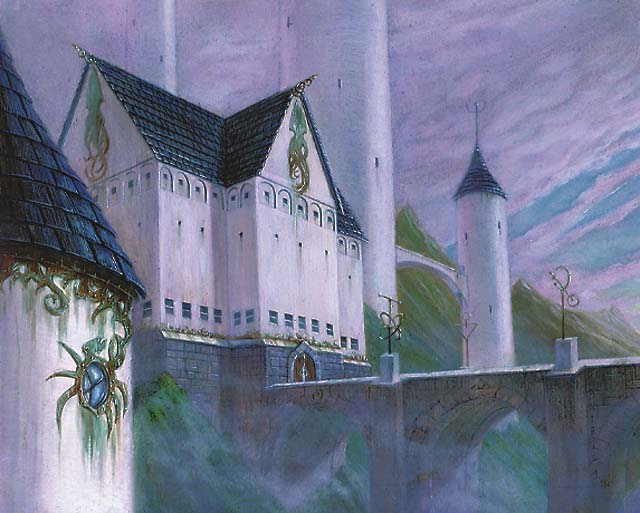billd91
Not your screen monkey (he/him) 🇺🇦🇵🇸🏳️⚧️
No. This post is so incredibly utterly wrong in every possible way.
I'm going to have to disagree with you on a few points here.
2E casting was not better balanced, the spells were even MORE powerful or vaguely defined. They just had some stupid random insane negatives that could hit you. Whatever. Till it hits, nothing's happened. After it does; roll a new character. You'll still be rolling new characters less often than the big stupid fighter who's job is to act as a speed bump to the monsters. Disruption was more common, but I've seen plenty of spell disruption in 3E if the other side is willing to use the ready system - which was designed partly FOR this purpose...
I think 2e was better balanced on a number of factors. The saving throw target values, being based almost entirely on the target not on the caster's optimized casting stat, was a good balancing principle that avoided some of the problems we see in 3e. Not all values were well thought out (what is with the thief's terrible saves?!?), but the structure kept the save or die spell + maximized casting state strategy from being as strong a strategy as it became in 3e. Evocations balanced against them much better in 1e and 2e than in 3e.
Magic Items help the noncasters more than the casters, since casters actually have their spells to fall back on. Let's put this in simple terms: What is a more significant shift in power? A country going from 0 nuclear weapons to 25 nuclear weapons, or a country going from 25 nuclear weapons to 50? Magic items give noncasters access to stuff they simply DID NOT HAVE before, and they get the same wealth to spend on them as the casters do, and Use Magic Device does exist. The only problem with magic item creation is only casters can do it. I'd like to see feats to let mundanes craft magic items, at least arms and armor. Limiting or doing away with magic items is the single surest way to make the noncasters go from underpowered to completely unplayable.
Absolutely, magic items help the non-casters more than the casters. That's why 1e's treasure tables were skewed away from wands and bracers of armor and toward consumables and weapons/armor. Fortunately, ExploderWizard isn't advocating getting rid of magical equipment. But 3e's magic item creation negates the scarcity of wizardly/clerical items by making it easier for the casters to get them on their own terms. Pathfinder offers a reasonable fix to this by allowing non-casters to use craft skills to compensate. But the initial problems rest with 3e's easy item creation. I won't even get into the way magic item creation promotes the Big 6. That's another problem altogether.
Such an initiative system would have its own drawbacks. Don't think anyone wants to see the mage/preist trying to heal an ally that desperately needs it get disrupted. Binary is not a balance solution. It just means the spell's either overpowered (binary = 1; casting went off) or completely worthless (binary = 0; it got disrupted, or if an all-or-nothing effect, was saved against). That's pretty damn unfun. I'd rather the spells just be toned down a bit/bunch instead.
If we listened to what was unfun every time someone complained about a limit that affected them, we'd end up with 4e. Actually, I think we did end up with 4e and now we're already moving on to something else.
Cyclical initiative makes running combats a bit smoother, but it does come with a cost and that cost is casters with a lot less fear of being disrupted. It's not the only factor leading in that direction (concentration checks and 5 foot steps certainly add to it, as does packing most spells into a standard action). But 2e's initiative system was quite a bit better at getting casters to make tactical choices between getting a spell off or increasing the risk of disruption. This was a good thing.






